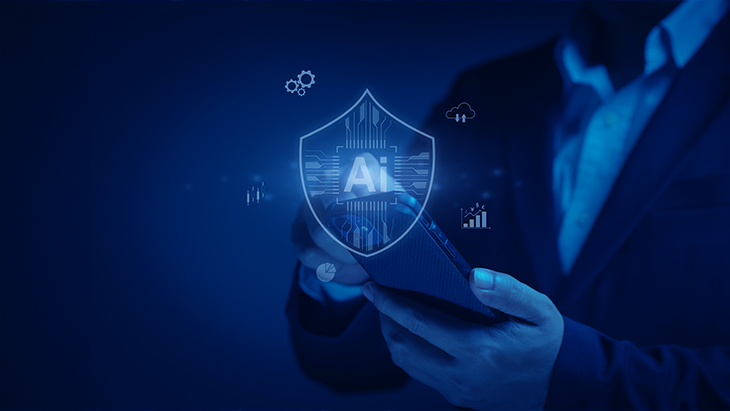
The Role of Artificial Intelligence in Cybersecurity: Opportunities and Challenges
The importance of artificial intelligence (AI) in cybersecurity is growing as the volume and complexity of cyber threats increase. AI has the potential to greatly enhance the ability of cybersecurity professionals to detect, prevent, and respond to these threats in real-time. However, it also brings with it a set of unique challenges that must be addressed in order to fully realize its potential.
One of the key advantages of AI for cybersecurity is its capacity to handle and analyze enormous amounts of data at a rate and scale that is simply unachievable by humans. This makes it possible for AI systems to find trends and abnormalities that can point to the existence of a cyber threat and to notify security experts to take appropriate action. AI can also be used to automate certain tasks, such as the analysis of log files or the detection of suspicious network traffic, freeing up security professionals to focus on more complex and high-level tasks.
Another opportunity for AI in cybersecurity is its potential to improve the accuracy and effectiveness of threat detection and response. Traditional cybersecurity approaches rely on established criteria and signatures to identify threats, which are simple for skilled attackers to get around. AI, on the other hand, can learn and adapt to new threats in real-time, allowing it to stay one step ahead of attackers and reduce the chances of a successful breach.
However, there are also a number of challenges that must be addressed in order for AI to be effectively integrated into cybersecurity systems. One of the main challenges is the issue of bias. An AI system may provide biased conclusions or predictions if the training data it was given is biased. This can be particularly problematic in the cybersecurity field, where the consequences of a wrong decision can be severe. Therefore, to reduce the danger of bias, it's crucial to make sure that the data utilized to train AI systems is diverse and representative of the larger population.
Another challenge is the issue of explainability (a machine learning model). AI systems can be difficult to understand and interpret, making it difficult for security professionals to understand how and why they arrived at a particular decision. This lack of explainability can make it difficult for security professionals to trust and rely on AI systems, which may limit their adoption and use.
Finally, there is the issue of security. AI systems themselves can be vulnerable to attack, and if an attacker is able to compromise an AI system, they may be able to use it to launch further attacks or gain access to sensitive information. It is therefore important to ensure that AI systems are designed with security in mind and to regularly test and update them to reduce the risk of compromise.
Overall, the role of AI in cybersecurity presents both opportunities and challenges. While it has the potential to greatly enhance the ability of security professionals to detect and respond to threats, it also brings with it a set of unique challenges that must be carefully managed in order to fully realize its potential. By addressing these challenges and leveraging the benefits of AI, it is possible to create a more effective and efficient cybersecurity system that can better protect against the growing threat of cyberattacks.
If you want to take advantage of AI-supported cybersecurity solutions to increase your data and access security, Kron's User Behavior Analytics (UBA) solution is ready to help. You can protect your organization from data breaches with UBA, which enables you to detect security threats and take action quickly by analyzing the movements and behaviors of privileged users with smart algorithms supported by artificial intelligence. Check out our User Behavior Analytics page for more detailed information, contact us to consult our expert team and find answers to your questions.













